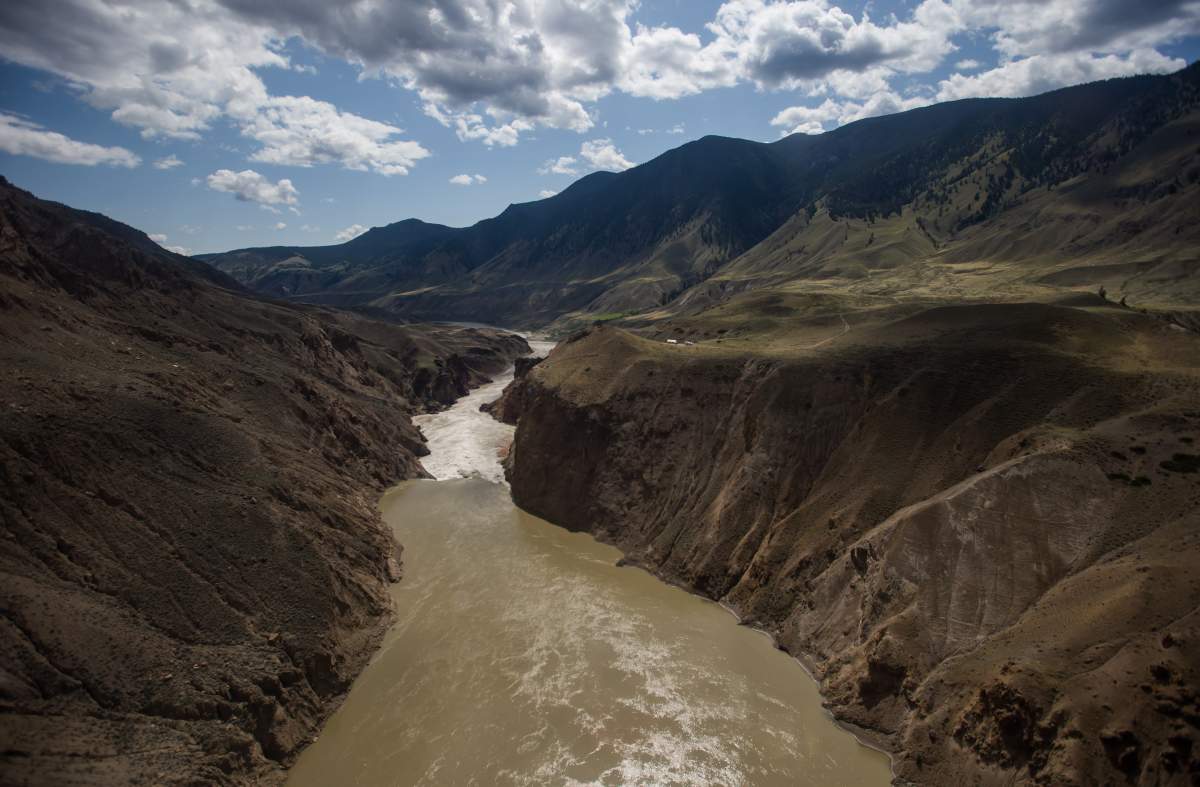Officials with the Department of Fisheries and Oceans say plans are underway for a pneumatic fish pump, also known as the salmon cannon, to help fish migrate past the Big Bar landslide on B.C.’s Fraser River.

Gwil Roberts, director of the landslide response team, said Monday that a fish ladder is under construction that will direct salmon to a holding pool where they’ll be pumped through a series of tubes suspended above the river.
The pump is more viable in high water levels than a fishway that was completed by using boulders to create areas where the salmon can rest as they swim upstream on their own, he said.

Get breaking National news
Snowpack is melting fast, and the BC River Forecast Centre says water volume in the Fraser is already hitting record levels.
Migrating salmon won’t be able to use the fishway until volume drops, Roberts said, which may not happen until August.
Until then, the salmon cannon will aid migration for fish that are expected to begin arriving in late May.

The landslide, believed to have occurred in the fall of 2018, created a five-metre waterfall that was nearly impossible for millions of salmon to clear in order to return to their spawning grounds.
Just 275,000 salmon were able to make it up river in the 2019 season, down from an early-season estimate of nearly five million.
If the pump can’t be used, Roberts said fish will be transported upstream by truck as tens of thousands were last year, in combination with helicopters.
He said the COVID-19 pandemic has not significantly delayed work at the site, and a newly completed road has improved access to the slide, which is surrounded by steep terrain and hazards.








Comments
Want to discuss? Please read our Commenting Policy first.